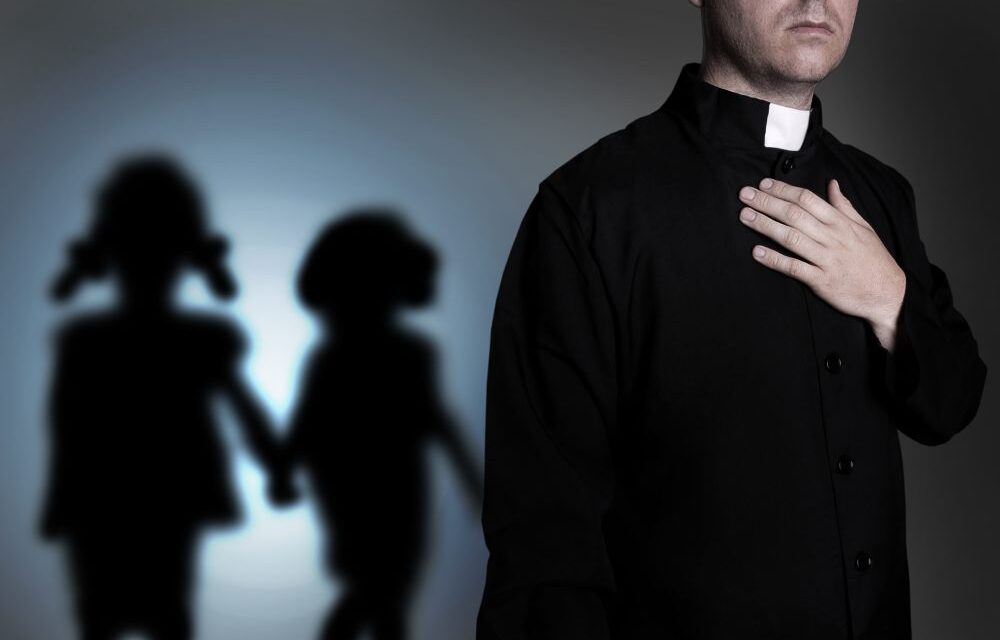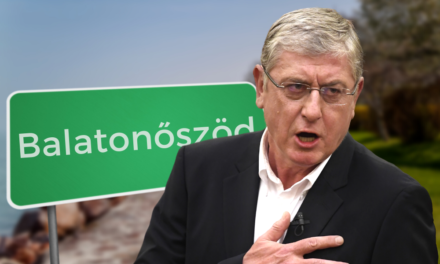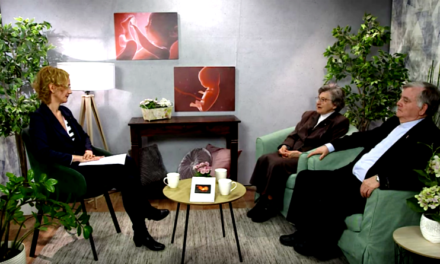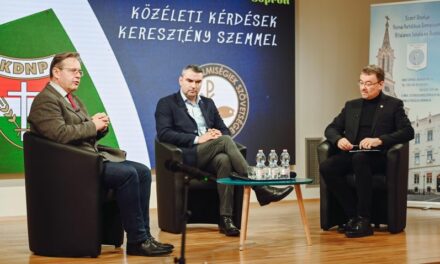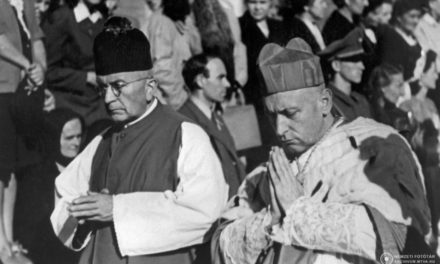"Attila's case could not happen today" - a conversation between a monk, a victim and a child protection specialist about the church, pedophilia and child protection.
777 OFFLINE's presentation in April touched on taboo-breaking questions on a topic that may have been taboo for a long time. The topic of the Church and child protection was discussed with Franciscan monk Benedek Dobszay, former victim Attila Dániel Pető, child protection activist and dr. We spoke with Balázs Puskás, a child protection specialist and vice president of the Children's Rights Association.
"We organized this conversation not against the church, but for the church"
- emphasized Zoltán Martí, editor-in-chief and host of the evening, at the beginning of 777 OFFLINE.
"In order to move out of the current situation within the church and society, we need to talk openly and honestly about these issues as much as possible. Obviously, we have a lot of fear and resistance, but if we don't dare to face reality, it will still face us in the same way, we will just be unprepared"
Franciscan monk Benedek Dobszay emphasized.
Attila Pető was also a guest of OFFLINE, who has been speaking openly in the media for several years about the sexual harassment he suffered during his youth for four years by Balázs Sz., a former Catholic priest who has since been secularized.
"In the past period, I like to introduce myself as a child protection activist. They used to present me as a former victim, but the fact is that I will be a victim for the rest of my life. I'm trying to convert myself from a victim to an activist, and so far it's going well, now I'm fine"
- said Attila Pető. An important question is what the Church learned from the incident that happened.
"What happened to Attila before 2010, the way his case was handled, is catastrophic - but I don't think anyone would take the same approach as they did then, for example, in the fact that he was obliged to keep secret in this case. A lot of training has been started in this field, but at the same time we can say that many things are still sorely lacking" -
said Benedek Dobszay. The monk added,
society is starting to understand being a victim better.
Let's talk about why the victims remain silent for decades, many people used to think that this discredited them, but today we understand much more what kind of psychological process takes place in them.
"In every country there was a significant case that drew attention to the fact that this is unsustainable: in our country it was Attila's case. These cases ignited a flame like a spark, so we noticed what had been in the dark until then.
Such a case cannot happen today.
In every diocese, in every religious order, there are child protection officers who immediately jump to the first situation where they need to communicate with a victim"
highlighted dr. Balázs Puskás is a child protection specialist.
According to the vice-president of the Children's Rights Association, it is very important that today there are many of us who are concerned about this topic, who know that this is wrong, and who pay more attention to the victim, the survivor, than to what will happen to the institution. The fear of scandal was very typical in these cases and is perhaps still there today. Jesus also said that "he does not break a broken reed, nor does he put out a flickering candle" . He bends over to the injured person, and this is our call, we must follow Him in this as well - Balázs Puskás recalled Máté's Gospel.
"Balázs ruined one of the very serious plans of my life, because if this hadn't happened to me, I would probably be serving as a priest and maybe I would be a closer member of this community. I'm not angry with Balázs anymore. I have no idea if he is aware of what he has done to me and the other victims. On the other hand, I am convinced that he needs help just as much as we, the victims"
Pető declared.
When asked how Attila's loyalty to the Catholic Church changed, he said: "The last 25 years have been a rollercoaster ride. I am a practicing Catholic, I spent the Holy Week ceremony in St. Stephen's Basilica. It was not a good experience. I tried to stay in the dark so they wouldn't notice me, but at the end of the ceremony a lady came up to me and asked: Are you that guy? You have no place here! Unfortunately, I have such experiences.
My faith, on the other hand, only got stronger, and I have very deep experiences of God."
The topic of child protection is very sensitive in Hungary in 2024, especially after the horror of the Bicske orphanage. If we compare the state's and the Church's understanding of child protection, how do they differ?
"What happened in the monks' offices and in some dioceses is certainly exemplary: it is about a preventive approach, turning towards the victims. After the incident in Bicske, they often talk about tightening up, but this alone is not worth much, prevention and due diligence are needed"
Balázs Puskás emphasized.
"Unfortunately, the described idea and real practice do not always overlap in either the state or the church system. Currently, written church law is stricter than civil law, whether it is about the issue of statute of limitations or age limits. More than once, there was a case that did not fall under the category of state criminal law, but the Holy See meted out punishment to the person, rightfully so.
- drew attention to the Franciscan monk.
At the same time, if the Church has better child protection, why is it that non-believers think the Catholic Church is a pedophile? "A proper communication staff would definitely come in handy when I look at the past years," said Attila Pető. Balázs Puskás took the floor and continued: "It would be good if as many people as possible understood that this is an existing problem, and the clergy would also dare to say it.
But we, civilians, also have a voice, we can testify and be braver.
In Portugal, for example, there was an investigation because the civilians there asked for it, and in the end they got it."
"If there is a scandal in the church, it will always be in the news, like when a plane crashes. If we say that we operate in the name of the gospel, morality, and the teachings of Jesus, then a scandal will always be magnified in our case. This is a huge responsibility that must be acknowledged"
Dobszay pointed out. "There will always be stereotypical thinking, but our job is to make order," he added.
"One person, the Good Lord, should not be left out of this whole story"
remarked the Franciscan monk. "I understand that there should be church marketing and good communication, but I believe in grace and that the Good Lord gives faith. Not one, not two of the victims are still members of the Christian community and want to remain so.
They should be given the opportunity to be.
Let's take the terrible burden that all this means to the cross!
This is the Church of Christ. If we are struggling here, let's try to do things well, let's believe that He will gather people here," concluded Benedek Dobszay.
It's worth watching the entire broadcast again, because we also cover questions like these:
• Many priests, bishops and believers cannot really empathize with the victims, rather they fear the good reputation of the Church. How can this be changed?
• To what extent did it cause Attila a moral difficulty that his tragedy was dealt with by mediums and organizations that go against the values of the Church?
• In concrete terms, what does the preventive approach mean in the Church? What does it manifest itself in?
• Where is God in such situations?
Featured Image: Illustration/Shutterstock

